'Make Church Less Churchy'- Catholicism with Father John
- Alison Turner
- May 31, 2023
- 18 min read
Updated: Apr 30

The life of a Catholic priest, the dedication and sacrifice, is one that very few understand.
Father John, who has asked to be referred to simply as ‘John’ throughout this article, has chosen to speak candidly on topics otherwise avoided by a Catholic priest;
- What are the dangers of religious ideology?
- How did the Church handle the uncovering of child sex abuse?
- Can people of same-sex orientation find support in Catholicism?
Through this interview, John hopes to provide insight into the way he lives.
Catholicism in a Nutshell
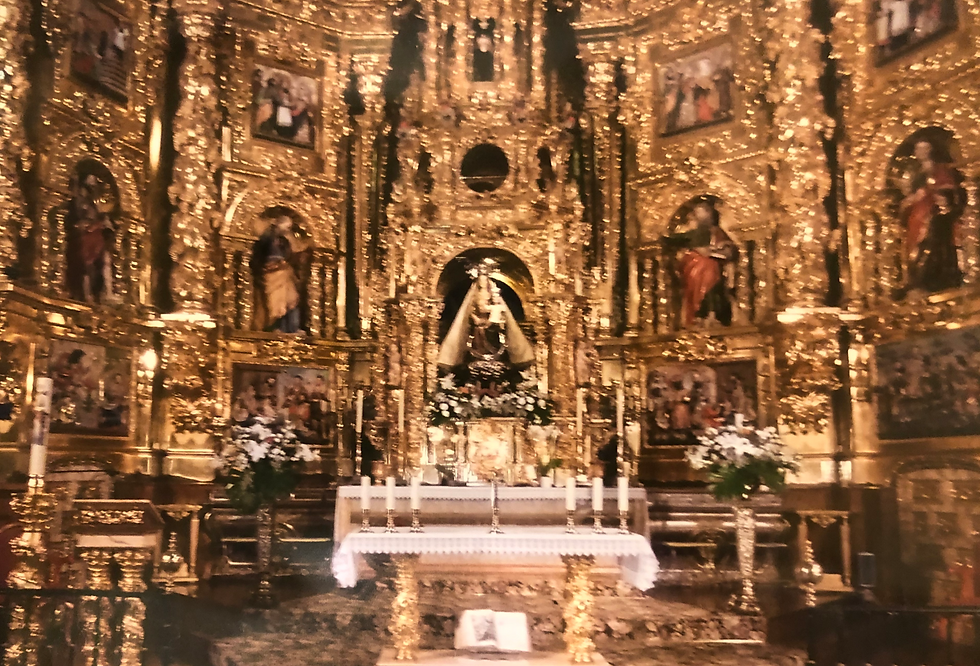
As one of the world’s most populous religions, simplifying Catholicism is a big ask.
In John’s words, Catholicism is ‘responding to God’s invitation to live life, by imitating the life of Christ and his words’.
‘It’s very general, and it needs to be general, Catholic belief’.
‘God’s word is not limited to scripture. God’s word is much wider than that. It’s life, it’s environment’.
Pope Francis, the most senior member of the Catholic Church, has a Church revolutionary stance on the environment, acknowledging Climate Change and the necessity for action- an incentive John shares.
‘The word (of God) is greater than scripture’. John believes that Christ’s teachings can be found outside of the bible. ‘There’s books written on the Cosmic Christ’ that aren’t mentioned in the bible, the belief that Christ dwells in our entire universe.
‘Christ is not limited to scripture, people experience Christ when they’ve never read scripture’. John believes that a spiritual connection is not only found Sunday morning in Mass; 'Christ is in our hearts; in our relationships, in our friendships, in nature’.
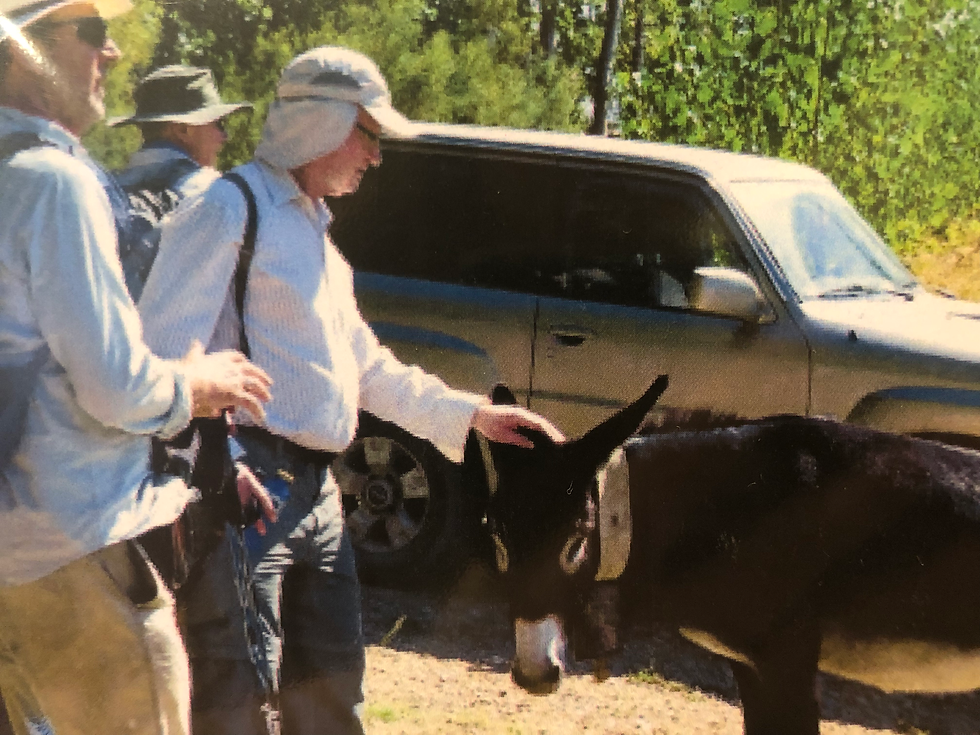
Zealot- ‘a person who is fanatical and uncompromising in pursuit of their religious, political or other ideals’.
If Christ is more than scripture, are there scriptures that don’t reflect Jesus? An inverted spin on the topic, but a question I feel is important.
So much hurt has been inflicted under the guise of bible verses. Is that what a Catholic priest believes Jesus intended?
‘I always say ‘be careful we don’t take scripture literally’, it was never intended to be taken literally, in fact, to do so is dangerous’.
The danger John refers is damage done by people he dubs ‘zealots’, those who project fanaticism under God’s name.
“There’s parables, there’s stories, there's poetry, there’s symbolism. It’s one thing what it says, but always look at the next layer. What does it mean?”.
“Miracles like catching the huge net of fish; it’s not really a fish story, it’s more a Church story about people, about being missionary.”
“It’s a bit like peeling an onion, there’s more layers once you begin to scratch the surface.”
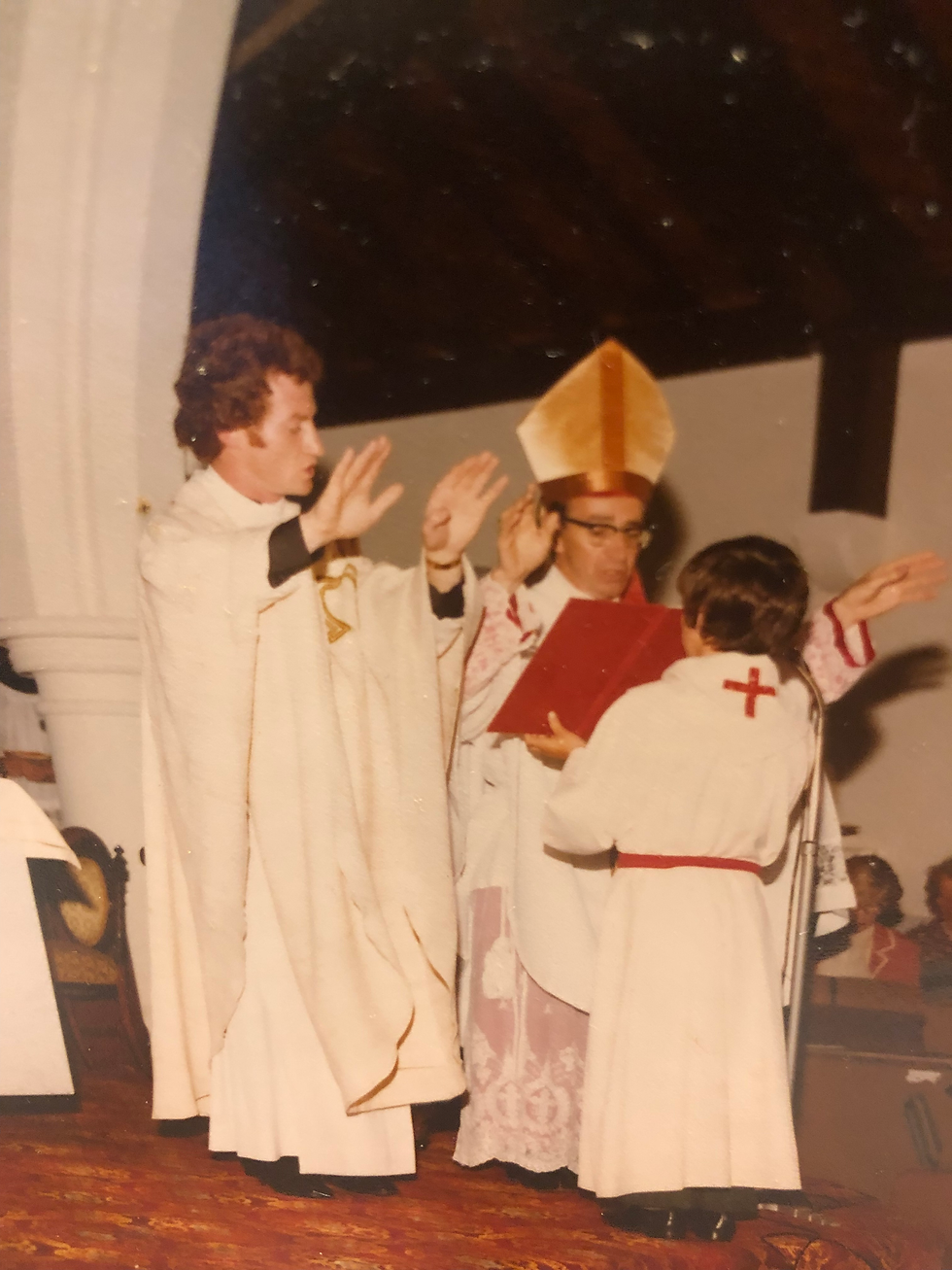
For John, the perception of God has changed and developed overtime.
Referencing scriptures from The Old Testament - readings from the bible dating before the birth of Christ - , ‘we don’t view God like that these days, I believe’.
Explaining; ‘the way people of ancient days imagined God if 'wrong' was committed, they spoke about the wrath of God. If we did good we would be honoured, or blessed, or rewarded’.
Are there any parts of scripture that should be taken literally?
Pondering on that question, I can only imagine the amount of bible verses running through John’s mind. After a few moments, a strong ‘yes’ is spoken.
‘Love your neighbour as yourself’. John quickly retracts the statement and replaces it with ‘stronger words’, ‘loving as Christ loved’. The reason for the retraction? ‘Not everyone loves themselves!’ John laughs- or your neighbour for that matter.
'To love as Christ loved, I would think you’d take that literally’. Imagine a world where selfless love was the message people practiced above all else.
The Road to Priesthood
The journey to become a priest began quite simplistically for John; ‘I went to the seminary straight from school’. ‘I wasn’t the first to go into religious life, there were quite a few nuns and priests from my local community.’
On choosing the life of priesthood; It was, in my time, an option. Not the most popular option, but it was an option. I feel today it’s not an option’.
‘I went to Werribee, that’s where the training was those days for the first three years’. It was there that John, along with other aspiring priests, studied philosophy, scripture, and theology.
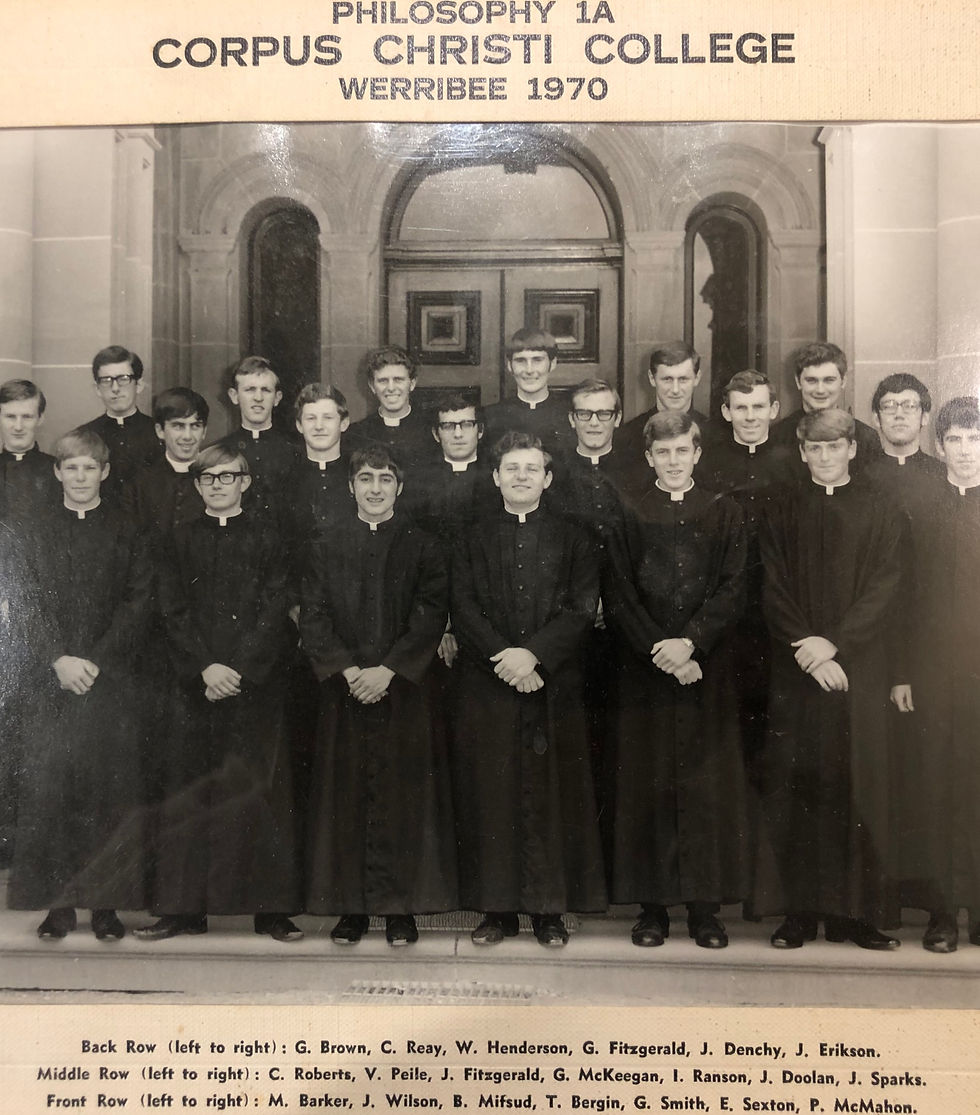
‘I spent nine years studying; three years at the seminary in Werribee, and six years at Corpus Christi College, Clayton’.
At what point during those nine years did John become certain he wanted to be a priest?
The answer; ‘never certain’.
John, understanding how life in faith ‘requires a great deal of trust’, took each stage as it came and was ‘more than happy to continue on’. ‘You always have a few doubts’, he admits, 'but I was always happy to serve God by being a minister of the Church'.
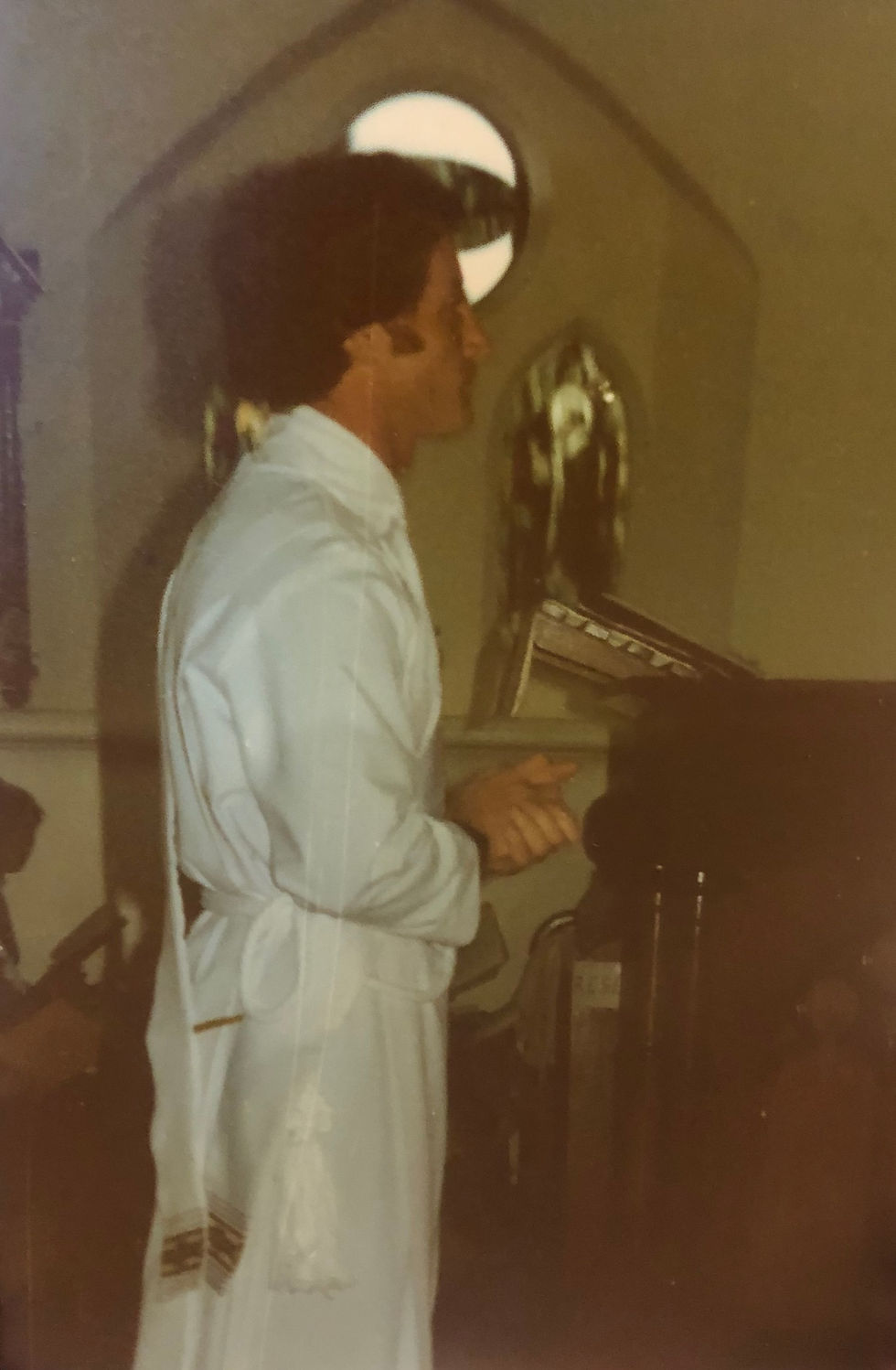
Alongside his religious studies, John made the unique decision to attend Monash University, studying towards an arts degree.
Freedom to mix with all sorts of people with various beliefs and lifestyles was a direct contrast to the holy life in the seminary.
‘The university time was a good time to make a decision to go or not go’, referring to continuing life in priesthood. ‘Quite a few seminarians decided to depart the seminary during that time’. ‘Half were ordained’, completing their study to become priests, and ‘half decided it wasn’t for them, they were happy to pursue another direction in life'.
At Monash, John studied; geography, philosophy and linguistics- all subjects that had ‘nothing directly to do’, 'but in essence it did, as a broad understanding of life is essential for priesthood'. John defines these lessons as ‘invaluable’.
‘University experience is helpful in other ways, apart from the subject itself’. It wasn’t the classes alone that John credits for his learnings, but claims ‘the most important subject’ was ‘mixing with other people’, ‘being grounded in life’.
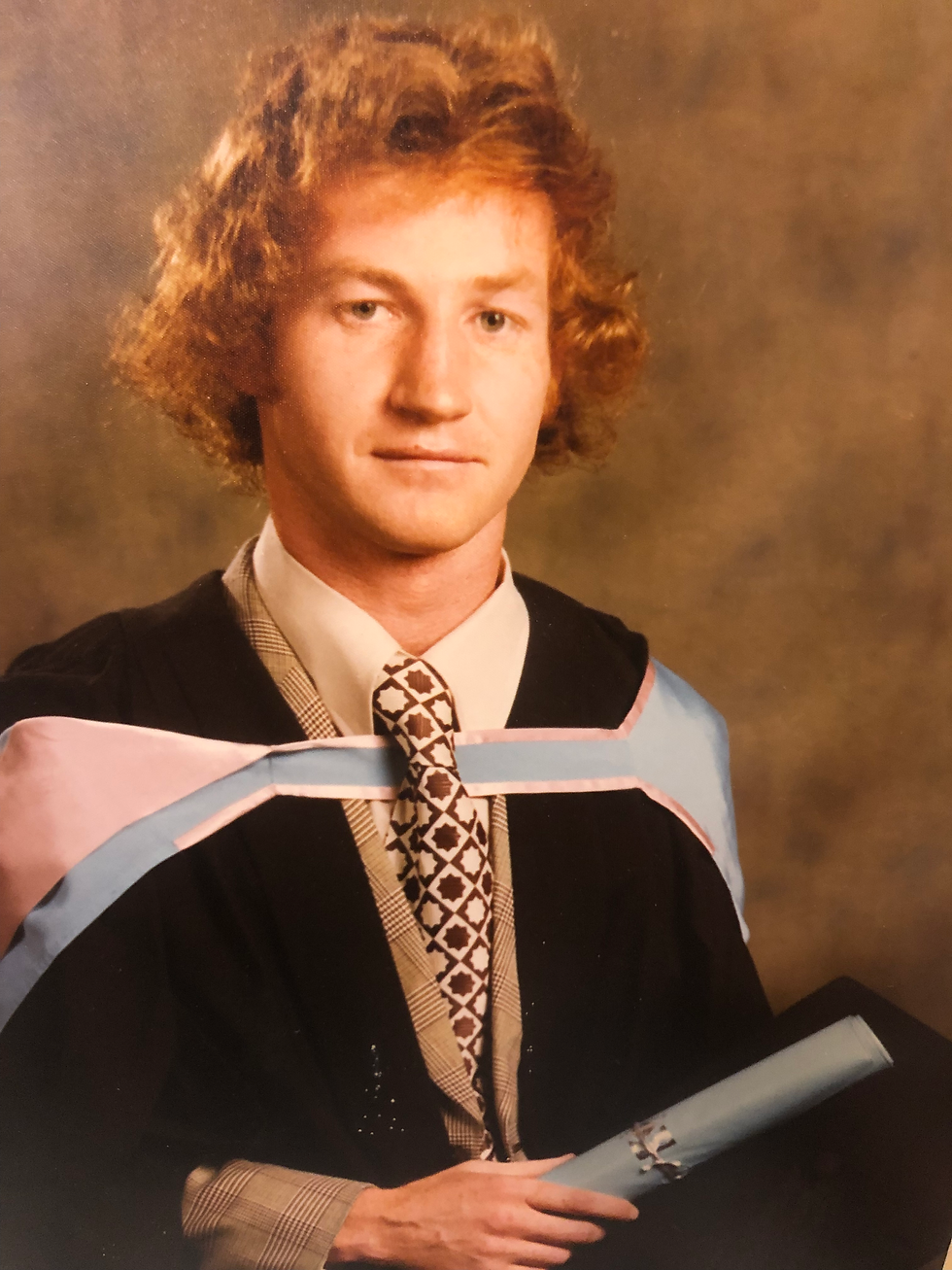
A few years after ordination, John was invited to continue gaining life experience over in the United States. ‘I studied theology and religious education. I received a Master of Arts Degree from Fordham University in New York’.
I ask John if the experience of university impacts the way he is as a priest, he says yes. ‘You realise later that anything that stretches your mind is beneficial’. Connecting with an array of people is an important role as a priest, and John does that wonderfully.
Pride in the Job
Living a life of service, John struggles to pinpoint which moments of his ministry produce the most pride. ‘Reflecting on the word ‘proud’ was difficult. What’s a proud moment?’.
'Probably seeing people helped and comforted. Also the trust God's people have in the Priest.' John's fondness turns to seldom as he adds; 'that's why it's so shocking when that trust is betrayed.
His answer is also found among moments of despair.
‘Often at funerals, families are normally grateful for the service. They’re grieving and just the occasion, the religious symbols or the word of someones eulogy, it does touch the hearts of people.’
Seeing people find comfort in the name of God evokes pride for John.
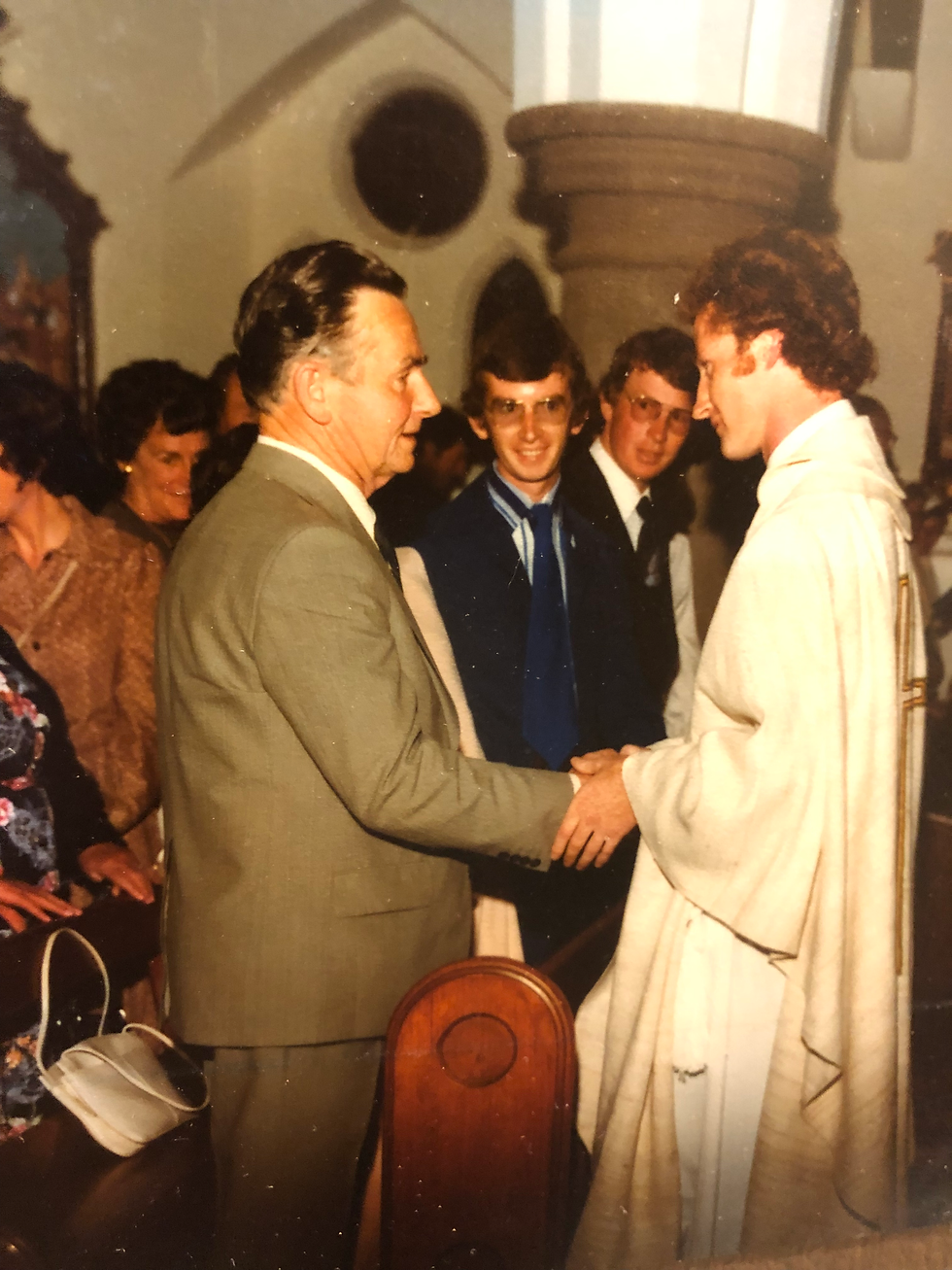
‘I find that funerals can be very sad, but also well received. There’s sadness, but there’s support by the community. There’s words of hope, it’s not doom or the end. There’s symbols of new life’.
The little things also make John feel proud to be a priest; ‘To receive an unexpected thank you’.
‘We don’t do things to be thanked, but I remember (during 2020) we used to livestream Masses from St Joseph’s. We were only allowed two or three people in the Church’. ‘Quite a few people did watch it. There were many Masses around the world we could latch on to’.
John pauses as he opens up his diary seated on the coffee table.
‘I just keep a few notes at the front’, he shuffles through, searching for one in particular.
It reads;
‘Hello Father John,
yesterday I was privileged to hear your reading of the gospel and your homily. We do not have any computers in our home, we are too old, but through the thoughtfulness of a couple, we were able to listen to you on the phone.’
Friends of the anonymous writer had held their phone up to the livestream of one of St Joseph’s Masses during Covid times for the writer to hear.
‘Congratulations’,
the letter continues.
‘It was just so beautiful and well done. In actual fact, at one stage I thought I was standing right next to that blind man’.
Referencing the bible story John was retelling.
‘We live in such troubled times, but maybe this is a wake up call, peace be with you’.
John tucks the precious piece of paper back in the pocket of his diary, commenting that ‘just a little note out of the blue’ adds so much pride to his job.
Tough Moments of Priesthood
Being a ‘naturally shy and reserved’ person, presiding at Sunday Masses are at times quite difficult for John; ‘You wouldn’t know it, but it doesn’t come easy’.

Adding to that stage fright is 'the possibility of disgruntled parishioners'.
John has another note to show me, a penned protest regarding a ‘liturgical dance', kept in the same pocket as his positive homily praise.
This anonymous letter icily reads;
‘Father Fitzgerald,
what a shock Sunday morning.
Dancing. All good, but not at Mass. The hall, yes.
So many not returned because of Covid.
There was a lot of talk in the yard after Mass, you will lose more if this keeps.
I won’t be coming back and you are supposed to make decisions.
This was a bad call.
Please let us have a no frills Mass.
Peace and quiet,
a parishioner’.
The dance in topic was a ‘prayer in movement’. ‘It wasn’t ballet or anything’, John clarifies, 'it was well prepared and rehearsed, and was well-received by the great majority of the congregation', ‘but someone didn’t like it’. ‘It sort of scares you a little bit, these little, snide remarks. This is how some people protest.’
I ask John why it was important for him to keep this letter;
‘it meant something to me at the time’, ‘I wanted to be honest with you’.
‘It’s important to share those things with one or two people otherwise they can eat at you and have power over you’.
This anonymous letter hasn't deterred John from intertwining expression into mass, with another liturgical dance scheduled for later this month; 'there always needs to be space for creativity in liturgy'.
Abuse

With the potential to create so much good, religion has also created an abundance of damage.
An area that John says he has not been proud of the Catholic Church has been throughout the history of sexual abuse.
‘It’s terrible stuff that is committed by some Church people’, ‘(abuse) shouldn’t be in the Church.’
In recent years, there has been an extensive uncovering of sexual abuse within the Catholic Church. ‘I remember in the local paper, they had (photos of) four of five (people) that had abused as priests and Christian Brothers in the Warrnambool region. They are no longer ministering in the Church’.
‘I wasn’t proud at all, it was hard for me to celebrate Mass that weekend. I nearly didn’t, but where would that leave the people?’.
The uniform of abuse; John doesn’t wear clerical clothing these days, an act of separation from those who have brought shame to the role of priesthood. ‘I couldn’t wear it because I identified with a group of people who abused people, and that’s not our calling. It’s no one's calling’.
John uses the word ‘we’ when discussing matters of the Church. I ask if he is included in the group that knew about the abuse before the public, he says no; ‘I had no idea until it was publicly revealed’.
‘People expect you to have known. There’s people who were in the same house as one or two (of the abusive priests) who would not have known what was happening. (The people who abuse) are very deceitful and cunning, it's part of the grooming’.
‘I would’ve known all the ones in our Diocese’.
John says he felt a sense of betrayal when discovering the truth.
‘The Bishop at the time struggled with what to do’, ‘he struggled with his loyalty’.
‘One thought was to send the abusive priests away for treatment, they might be healed’, ‘but we know from experience that it’s hard to heal. People do reoffend’.
The Church’s initial response to abuse allegations was to move the abusive priests from one Parish to another. ‘It continued for so long because (the abusive priests) weren’t challenged’.
John agrees that there was a variety of responses by the Church authorities on how to handle the uncovering of child sex abuse.
‘I don’t think the (Church) authorities were, at the time, were upfront. They were very shocked and embarrassed, and they realised their own authority was being eroded because they didn’t do the right thing by the victims.’
‘There wasn’t a uniform way of responding’. ‘Often it was the newspapers and the reporters who brought it out in the open and the Church were then forced to respond.’
‘We weren’t up front’.
‘We have to be thankful for reporters or the newspapers for revealing this abuse and making this abuse public’.
‘It was hard to admit you were a priest at times’, both internally and externally. ‘I'd be embarrassed. There was backlash. I definitely wouldn’t be wearing a collar’, a uniform symbol of priesthood.
“There was inner turmoil. I didn’t think about leaving, but I thought ‘how do I face up to tomorrow?’”.
The way John now works as a priest has been impacted ‘very much so’ by the revelations of abuse.
‘I love kids, I love to see them around and at Church, but I don’t interact with them as I used to’. ‘I used to have a kick of the footy with them, I don’t do that now’.
As an institution, is it necessary to have such limited interactions with children?
‘You’ve got to have strict boundaries with children’, John states, ‘unfortunately, I think I’ve made the boundaries bigger than they have to be’. ‘The trouble is, you go to the extreme and then have nothing to do with kids. They don’t get to know you’.
If this level of precaution had been mandated historically, would abuse within the Church still have happened?
‘People are very deceiving and no one can follow someone twenty-four hours day’, ‘it probably still would have happened in some cases’.
John does, however, recognise the change created by conversation of sexual abuse, 'this has been healthy'.
‘Because the society are more conscious of it, there will be less (abuse) because people are more aware of the behaviour, the grooming’.
‘That’s a time I wasn’t proud, over a period of time, and (stories of abuse) keep coming up, of course’.
‘I cringe when I read about it, as victims are so wounded, but I also have to be strong for our people’.
The Danger of Clericalism
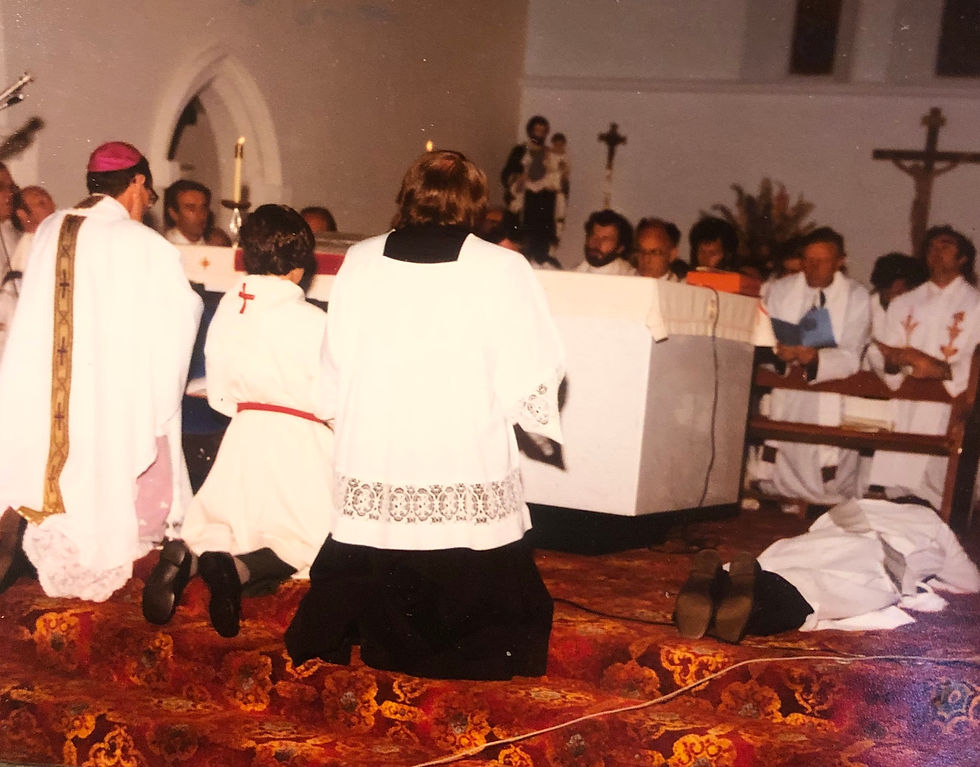
One area of the Church that John does believe contributed to abuse, besides the ‘deceitful and cunning’ ex-priests themselves, is the system we call 'clericalism'.
‘The clerical Church’ refers to the act of giving more importance to a role than required, formulating a hierarchy. This has resulted in too much trust and power invested in the priest.
‘The Royal Commission came down heavily on clericalism. You don’t have to be a clergy person to be clerical’.
John describes the image that the Church authorities previously aimed to create for their members, the idea that clergy members of the Church were behind reproach.
‘That’s why some parents didn’t even believe their kids (when their children came forward with statements of abuse)’, John adds in a sorrowful tone, ‘(the parents) thought, ‘oh, the priest wouldn’t do that’. (Church authorities) created the idea that priests would never do wrong’.
‘(The authorities) were hesitant to ruin the so called 'good name' of the Church, and they put the Church ahead of individuals’.
Hierarchy within the Catholic Church is an area John feels a more contemporary approach is needed.
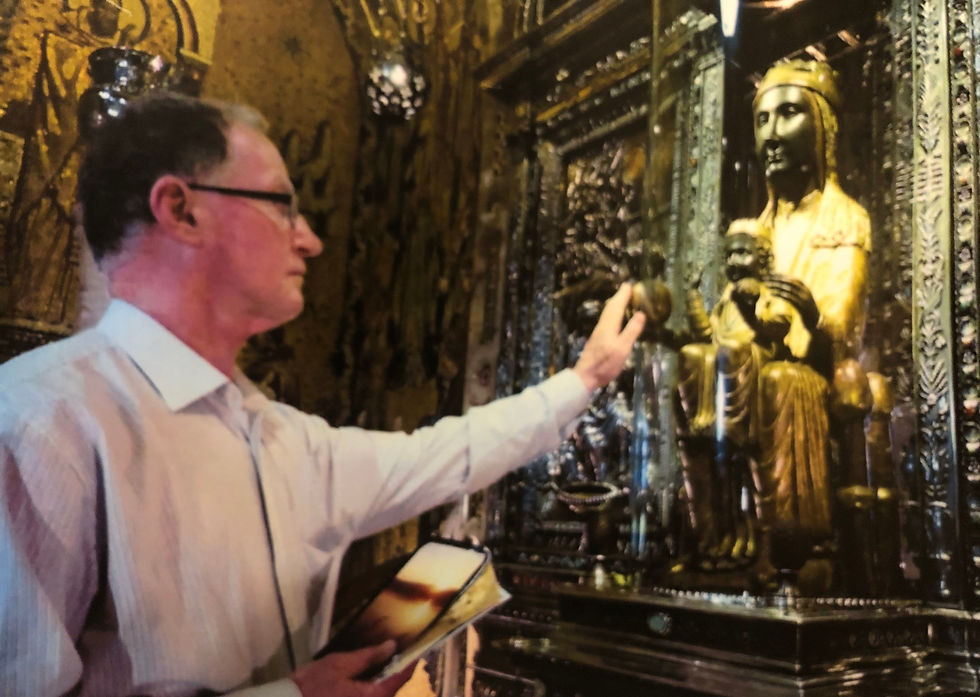
LGBTQIA+
Would Jesus have been accepting of gay people? According to John, ‘very much so.’ ‘He’s accepting of all people. We are called to love and care for all people. How people live their lives, it’s their choice.’
With a nod of honesty, John confesses that his stance on same-sex relationships wasn’t always this way; ’it’s taken me a while to be as accepting, because I wasn’t brought up with openly gay couples around me and they were never spoken of, but we know there are many gay couples and so I hope I am accepting of them.’
‘I think the Pope would be quite accepting, and many’, John corrects himself, ‘some, of the Church authorities would be accepting of couples who are committed in a relationship, including same sex relationships.'
John shares that he believes the idea that Churches are anti-gay is ‘a misconception’. ‘There would be anti-gay people within the Church, but the Church as a whole is not anti-gay’.
I ask if John thinks it would be important for the Church to address these misconceptions; ‘that would be big challenge. Where do you start trying to correct misconceptions? Let's start with ourselves.’
I respond to John by providing suggestions, one being a clear statement of support for the LGBTQIA+ community during Mass.
‘I haven’t done that, have I?’ John thinks aloud. 'It needs to be in some sort of context and not just a statement'.
‘The Eucharist is meant to be a sacrament of unity. Sometimes in proving a point, though a good point, it may be at times divisive.’
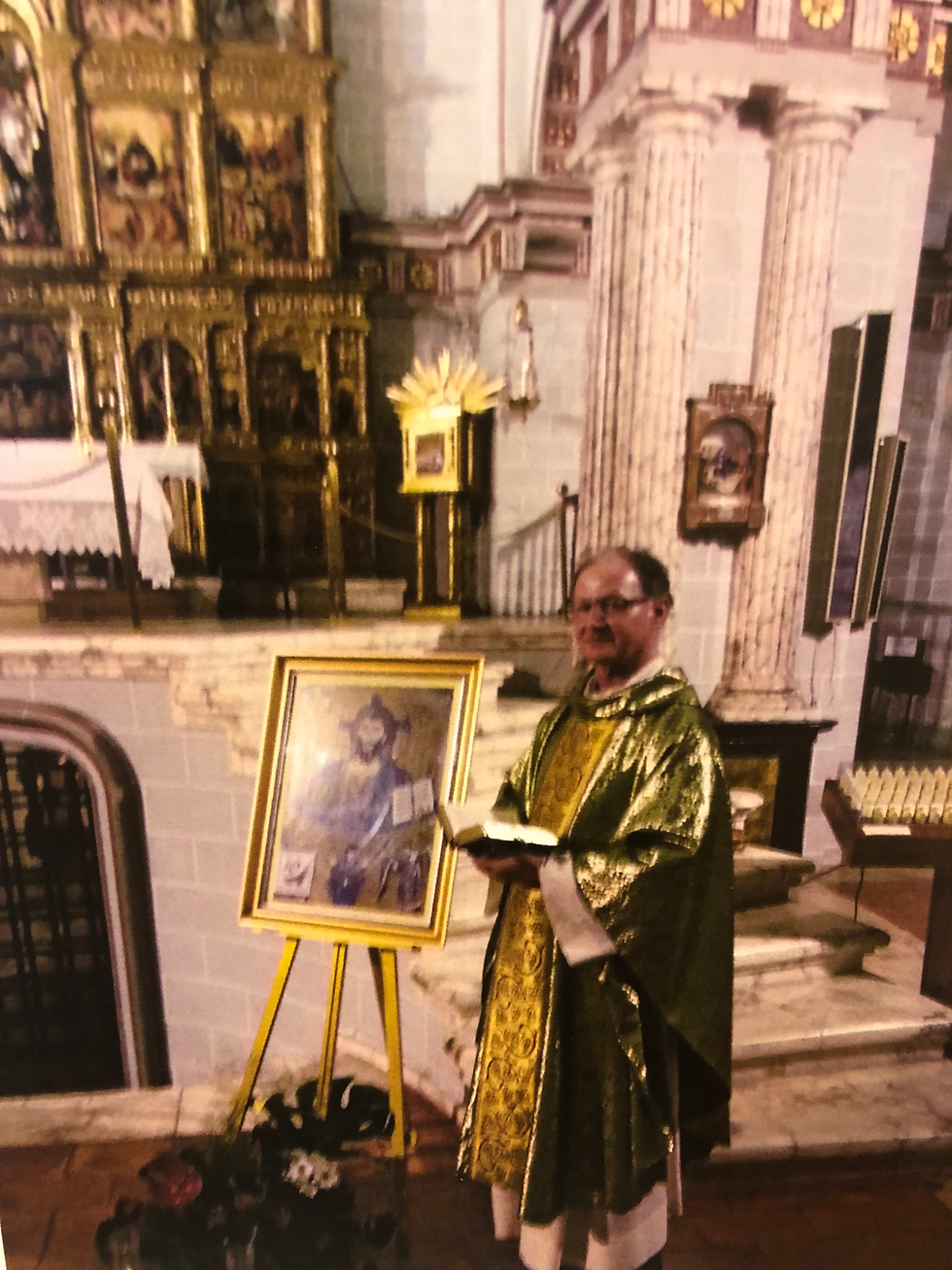
Adding in an honest tone; ‘it’s just one of those areas where I’m probably not ready to approach it publicly, but I would say it in subtle ways’.
John often speaks against hatred, violence, and judgement during Mass, and says these topics are spoken at times in relation to anti-gay behaviours.
Is it not divisive to avoid addressing the issue of homophobia within the Church?
‘It’s probably a bit of divisiveness no matter which way we go.’
‘We might one day get up and say ‘over the next two months we have guest speakers in’. We might have a person come in and share their experience as a gay person. The person could say ‘I'm a Catholic, this is who I am. I’ve been invited to share who I am’.'
‘That would be good, wouldn't it?’
“One of the things we preach about, Jesus preached about, and especially St Paul, is freedom. Freedom of choice. It’s only when you hurt and maim people, oppress people or use people, that it’s not good. One of the things about the human being is the gift of freedom, and that is at the heart of the Gospel. St Paul spent chapter after chapter on ‘freedom’.”
Freedom of speech. Freedom of religion. Freedom of sexuality.
‘We should take that scripture seriously’.
Where to Now?
‘There’s always a need for movement in the Church’, John states passionately.

‘In the 60’s and 70’s, the Churches were very populated. Five morning Masses here at St Joseph's Church every Sunday’. ‘To attend Church was an expectation, there were very strong Catholic communities, especially around this area; Koroit and Killarney’. . . ‘the Irish’, John laughs with a nod of recognition.
‘We didn’t even question it, everyone went, everyone in the community’. 'I think people enjoyed going, it was perhaps the main community event of the week'.
‘It was a triumphant Church. We were proud to be Catholic’. ‘I think the direction is quite different today’.
Attendance at Mass has never been lower than it is in the twenty-first century. This isn’t viewed as a major issue to John. 'It's not the end of the world, we need to listen to the Spirit to discern 'what is this saying to us?'.'
‘It doesn’t worry me that we don’t become as large as we were in the 60’s and 70’s in the Church. I don’t think Christ ever expected that, or wanted that.’ ‘I’d love to see more in attendance, but the lower numbers don’t overwhelm or depress me.’
Accompanying the dwindling number of Mass attendees, is a decline in students entering priesthood.

John views this issue as a sign from God to explore different paths. 'Todays culture is so very different to former times.'
‘Perhaps it means that priesthood could change. What is the Holy Spirit saying when people aren’t entering the seminary? It might mean that our good people who are already part of the community could lead the Eucharist, for example.’
‘I would support exploring, not just experimenting, lifestyles and ways we can involve people in ministry. I’m talking about both males and females too’.
Another avenue for potential change for priesthood is the law of celibacy.
Currently, celibacy is required to become a priest. John is supportive of looking at the question of celibacy; ‘especially now. I think you would get more people fulfilling the role if that were to change.’
The law of celibacy hasn’t always been the case, demonstrating that the Catholic Church is open to change; ‘I think celibacy only officially came in around the twelfth century, people in general mightn’t realise that. It’s thought that some of the apostles may have been married’.
Other ideas to encourage more into the career of priesthood is perhaps to introduce a ‘part time’ option; ‘You might have a job four days a week and work officially for the Church on the weekends. For example, presiding at the Sunday Eucharist’.
‘These are some of the views that are being discussed by those concerned about the future of the Church’.
‘Pope Francis is open to a more progressive Church. There’s a lot of very strong conservative people in power, in authority. (The pope) doesn’t get it easy!’.
‘I take the stance of Pope Francis, really. That we’re probably called to be a more humble servant type Church. Probably be smaller in number, less hierarchical.’
‘The opposite of hierarchical is to participate. I hope the Church has already started to progress in sharing responsibility with all of God’s people. Especially in decision-making, both men and women’.
‘I think sometimes you need a 'bomb' to change direction. We’ve had a few 'bombs' in our history, so I do see a direction changing’.
Legacy as a Priest
The official age of retirement for a priest is seventy-five, and John is ‘more than happy’ to retire in a few years. Undoubtedly, a legacy will be left behind. What does John envision that being?
Making Church a ‘more personable’ environment, ‘less clerical’, and with priests not always being ‘the front person’ are all on John’s agenda.
‘I remember someone gave an analogy about the priest as a leader, and they asked ‘now, where should he sit in the bus?’ everyone had their opinions. The lecturer said, ‘what about the fourth seat down on the left hand side?’ In other words, he’s saying he’s part of the community.’

Fourth seat down on the left hand side is exactly where John would like to sit, ‘to enable our people to share in the mission’.
‘Some people see the Church as black and white’, ‘you’ve got to do this and you’ve got to do that, and you’re frowned upon if you do anything too different’. This is an attitude John would like to change’, ‘not that I do anything too different!’.
“just the dancing” I interject, referencing the dramatised dancing.
‘Yes, the dancing’ John responds, laughing.
All in all, John wants to leave behind the legacy ‘making Church less churchy’, ‘making it friendlier, you don’t have to pass a test to be a member of the Church. You don’t have to agree with every Church statement’.
‘The Church is there to support people in their beliefs and in their lives. Others will get support from elsewhere, from perhaps sporting clubs or interest groups. The Church is there for those who appreciate the Church’.
Recipe for a Life Well Lived
To John, the recipe for a life well lived is made up of five ingredients.
Firstly, ‘a loving family’, ‘it doesn’t have to be perfect, but having care there’. ‘People do amazing things and have a different story’, John acknowledges, ‘however, to me that is important for a really good start in life.’
Secondly, ‘I also believe it’s really important to have friends’. ‘It doesn’t have to be many, but it’s important that we don’t feel alone’.
Third; ‘education’. ‘Without education, life is far too difficult’.
Fourth, ‘to be able to share hurts, to share feelings’.
And finally, ‘to have interests’ away from your job. John enjoys ‘sports of all sorts’, dining out, and the races.
This final ingredient of variety creates a life of fulfilment for Father John.
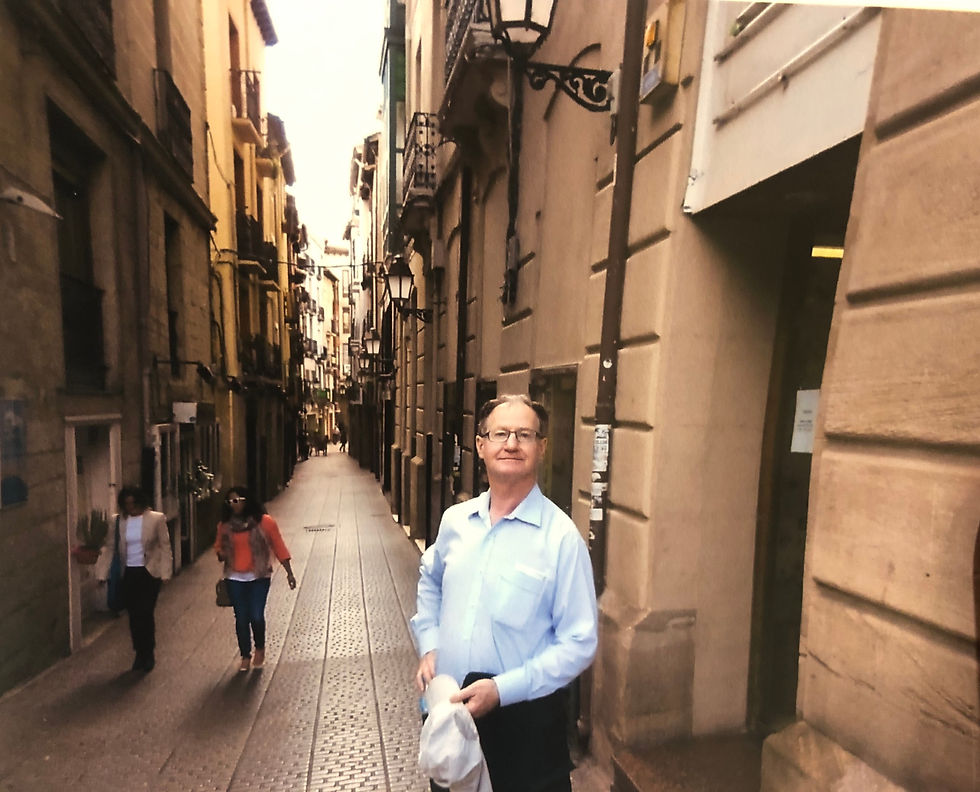
Children of the Church, Today
I contacted the Parish's Child Safety Officer for information on what policies have been implemented for the protection of children since the uncovering of abuse.
The Child Safety Police, established in 2017, includes;
- a zero tolerance rule on child abuse
- open discussions with children on what they can do if they feel unsafe and enable them to understand, identify, discuss and report on child safety
- If a child makes a disclosure that sexual, physical or psychological abuse is occurring, or you form an objectively reasonable belief that a child is being harmed, or is at risk of being harmed, it must be immediately reported to Victoria Police as required in accordance with the Crimes Act.
- When recruiting and selecting employees, contractors and volunteers involved in child- connected work, all reasonable efforts must be made to: confirm the applicant’s Working with Children Check and National Police Check status and/or professional registration (as relevant), obtain proof of personal identity and any professional or other qualifications, verify the applicant’s history of work involving children, obtain references that address the applicant’s suitability for the job and working with children.

A child safety checklist must also be followed, entailing that the parish has;
appointed a Parish Safeguarding Officer
a child safety policy
child safety code of conduct
displayed child safety posters and the community statement to child safety in a prominent location in the parish
child safety policy and code of conduct on display in parish, have notified parish community about documents
A code of conduct, detailing all unacceptable behaviours, reads as follows;
Staff, volunteers, contractors, clergy and parish council members must not:
ignore or disregard any suspected or disclosed child abuse
develop any ‘special’ relationships with children that could be seen as favouritism (for example, the offering of gifts or special treatment for specific children)
exhibit behaviours with children which may be construed as unnecessarily physical (for example, inappropriate sitting on laps)
put children at risk of abuse (for example, by locking doors or being alone with a child with no good cause)
initiate unnecessary physical contact with children or do things of a personal nature that a child can do for themselves, such as toileting or changing clothes
manage disruptive or unsafe behaviour by degrading or isolating a child; corporal punishment is never acceptable. Physical restraint should only be used as a last resort or in an emergency
engage in open discussions of a mature or adult nature in the presence of children (for example, personal details or social activities)
use inappropriate language in the presence of children
express personal views on cultures, race or sexuality in the presence of children
discriminate against any child because of age, gender, race, culture, vulnerability, sexuality, ethnicity or disability
have contact with a child or their family who is/are not socially related outside of the pastoral duties reasonably associated with the role description of the person’s position in the parish without the parish priest’s or child safety officer’s (if the parish has appointed someone to this role) knowledge and/or consent (other than accidental contact, such as seeing people in the street)
have any online contact (including by social media, email, instant messaging etc.) with a child or their family who is/are not family or socially related (unless necessary e.g. by providing families with e-newsletters)
use any personal communication channels/device such as a personal email account to conduct parish communications
exchange personal contact details such as phone number, social networking sites or email addresses with a child or their family who is/are not family or socially related
photograph or video a child without the consent of the parent or guardians
work with children while under the influence of alcohol or illegal drugs
consume drugs on parish premises or at parish events.
The Parish's child safety officer stated that she is 'certain we could be doing more for our children and everyone in our church community', these policies demonstrate the efforts thus far.








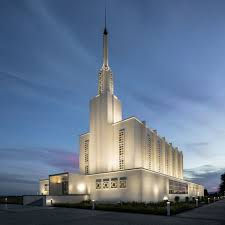

Awesome work